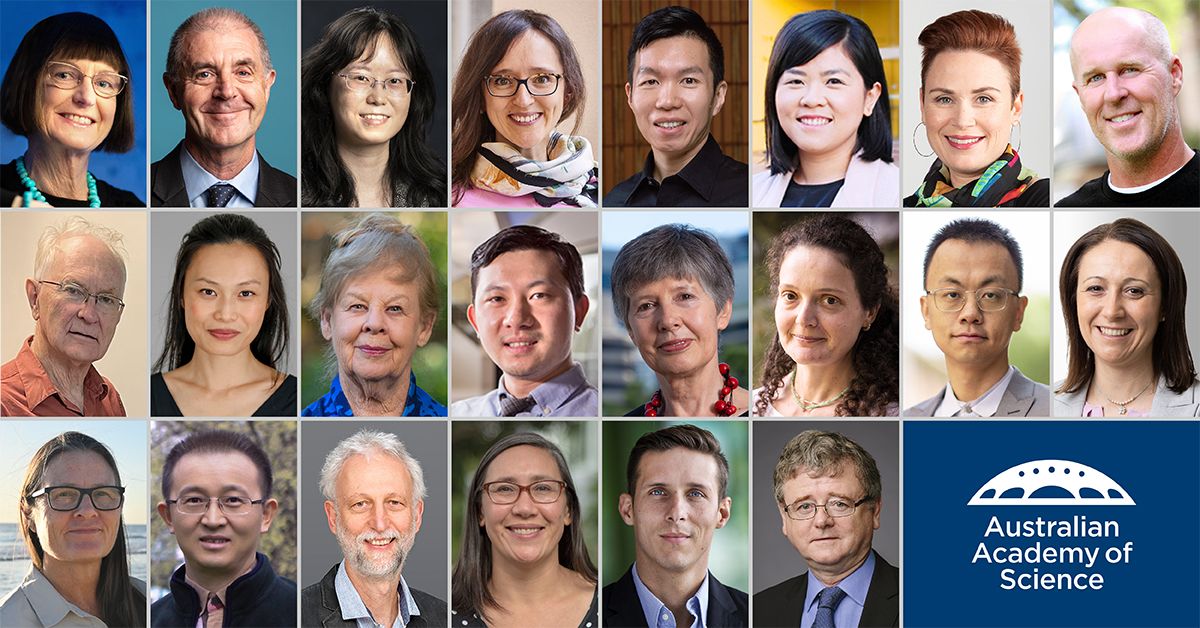
From investigating the structure of space-time to the inner workings of volcanoes and the genetics of sex-twenty-two scientists are today recognised by the Australian Academy of Science for their outstanding contributions to science.
Leading minds and future superstars
The honorific awards celebrate the achievements of the country’s leading minds and future superstars, spanning early-career recipients to those who have made career-long advancements in their fields.
In 2023, Professor Lidia Morawska of the Queensland University of Technology is awarded one of the most prestigious career awards of the Academy: the Matthew Flinders Medal and Lecture.
Professor Morawska’s 30 years of pioneering work has advanced the multifaceted study of air pollution, including laying the foundation for the 2021 World Health Organization (WHO) Global Air Quality Guidelines. In early 2020, she led a group of more than 200 international experts calling for authorities to recognise the importance of airborne transmission in the COVID-19 pandemic.
Professor Jennifer Graves of La Trobe University is awarded the Ruby Payne-Scott Medal and Lecture, another of the most prestigious Academy awards. An international leader in comparative genomics of vertebrates, Professor Graves has shown Australian animals are a powerful source of information for investigating the evolution and mechanisms of sex chromosomes.
Studying kangaroos, dragons, devils and more, she has made fundamental discoveries including how the X chromosome is genetically silenced in female mammals, and that the Y chromosome is decaying and could “self-destruct” in a few million years.
Professor David Craik of the University of Queensland is awarded the David Craig Medal and Lecture, recognising the significant achievements stemming from his discovery of a family of circular plant peptides. Along with becoming a world leader in defining the structures and functions of these cyclotides, he’s spurring innovations to harness their diverse applications-including developing new classes of drugs and eco-friendly pesticides.
The Suzanne Cory Medal is jointly awarded to Professor Catherine Lovelock of the University of Queensland and Professor Terence Hughes of James Cook University. Their achievements include demonstrating the role of coastal wetlands in mitigating climate change, and pioneering exploration of the resilience of coral reefs to pollution, overfishing and climate stressors, respectively.
Professor Susan Scott of The Australian ³Ô¹ÏÍøÕ¾ University and Professor Nick Wormald of Monash University receive the Thomas Ranken Lyle Medal for outstanding achievements in mathematics and physics.
Professor Scott played a leading role in Australia’s participation in the first direct detection of gravitational waves and has made fundamental advances in our understanding of the fabric of space-time in general relativity, while Professor Wormald’s advancements in random graph theory have led to versatile tools used in network optimisation, underground mine design and genetics.
At the mid-career level, Professor Di Yu of the University of Queensland receives the Jacques Miller Medal, in recognition of his significant immunological discoveries, including the key molecules and pathways for T cell function in health and diseases.
Dr Teresa Ubide of the University of Queensland, one of 11 early-career scientists recognised in this year’s honorifics, receives the Anton Hales Medal.
Dr Ubide is working to forecast volcanic eruptions, for the benefit of millions of people living close to or visiting active volcanoes around the world. By studying the chemistry of tiny crystals in volcanic rocks, she’s working to decipher what triggers eruptions, as well as exploring metals for renewable energy technologies.
President of the Australian Academy of Science Professor Chennupati Jagadish AC PresAA FREng FTSE said all recipients have much to be proud of and are making tremendous contributions to science.
All recipients have much to be proud of and are making tremendous contributions to science.
“Each year, the depth and breadth of achievements, recognised by these honorific awards, continues to inspire me, as I hope it does other scientists and Australians,” Professor Jagadish said.
“These awardees are working not only to advance their fields, but for the betterment of our communities and the planet-improving our understanding of the world while addressing some of the most pressing challenges facing us.
“I encourage other scientists across Australia to nominate a colleague, especially underrepresented individuals, for a 2024 honorific award.”
2023 award recipients
Premier honorific awards
Matthew Flinders Medal and Lecture- FAA, Queensland University of Technology
Ruby Payne-Scott Medal and Lecture – AC FAA, La Trobe University
Career honorifics (for lifelong achievement)
David Craig Medal and Lecture- FAA FRS, University of Queensland
Suzanne Cory Medal- FAA, University of Queensland and FAA, James Cook University
Thomas Ranken Lyle Medal- FAA, Australian ³Ô¹ÏÍøÕ¾ University and FAA, Monash University
Jaeger Medal- FAA, University of New South Wales
Hannan Medal- FAA, Australian ³Ô¹ÏÍøÕ¾ University
Mid-career honorifics (8-15 years post-PhD)
Jacques Miller Medal-, University of Queensland
Nancy Millis Medal for Women in Science-, University of Sydney
Early-career honorifics (up to 10 years post-PhD)
Anton Hales Medal-, University of Queensland
Christopher Heyde Medal- University of Wollongong
Dorothy Hill Medal-, Curtin University
Fenner Medal- Victor Chang Cardiac Research Institute
Gottschalk Medal-, Australian ³Ô¹ÏÍøÕ¾ University
John Booker Medal-, Monash University
Le Fèvre Medal- University of New South Wales and , RMIT University
Moran Medal-, Monash University and University of Sydney
Pawsey Medal- Australian ³Ô¹ÏÍøÕ¾ University








